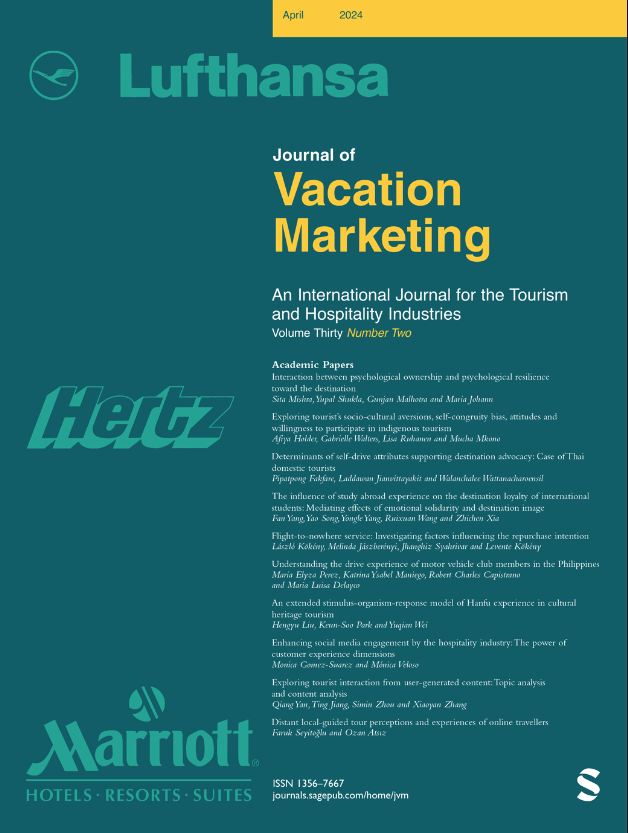Post-pandemic collaborative destination marketing: Effectiveness and impact on different generational audiences
IF 5
3区 管理学
Q1 BUSINESS
引用次数: 0
Abstract
In a break from the traditional focus on destination image recovery in post-crisis scenarios, the COVID-19 pandemic required a different approach to collaborative destination marketing. This research aims to fill a gap in knowledge about the factors that drive post-pandemic collaborative destination marketing strategies, the objectives that are set, their effectiveness, and the different impacts on diverse age groups. Grounded in stakeholder and generational theories, this study examines an innovative collaborative marketing campaign for Spain in 2022. Spain's tourism rebounded swiftly that year, almost reaching pre-pandemic international visitor numbers. The campaign was collaboratively developed by TourSpain, the Spanish National Tourism Organisation (NTO), along with six regional and local Spanish Destination Marketing Organisations (DMOs), Expedia, and TripAdvisor. In-depth interviews were conducted with all stakeholder groups involved in the campaign, and this was complemented by focus groups with U.K. residents, grouped by generation. The findings revealed how the stakeholders reoriented their post-pandemic collaborative strategies to considering variables, such as customer journey stages and sociodemographic factors, to achieve branding and conversion objectives. The study also discovered that the campaign's effectiveness varied across different generational audiences. This research provides valuable insights for NTOs and DMOs in designing future post-crisis collaborative marketing initiatives.大流行后的目的地合作营销:对不同世代受众的效果和影响
COVID-19 大流行打破了危机后目的地形象恢复的传统重点,需要采用不同的方法进行目的地合作营销。本研究旨在填补有关推动大流行后合作目的地营销战略的因素、设定的目标、其有效性以及对不同年龄群体的不同影响的知识空白。本研究以利益相关者和代际理论为基础,探讨了 2022 年西班牙的创新合作营销活动。这一年,西班牙旅游业迅速反弹,国际游客数量几乎达到大流行前的水平。该活动由西班牙国家旅游局 (NTO)、西班牙六个地区性和地方性目的地营销组织 (DMO)、Expedia 和 TripAdvisor 共同合作开展。我们对参与活动的所有利益相关群体进行了深入访谈,并对英国居民按世代分组进行了焦点小组访谈。研究结果揭示了利益相关方如何调整其大流行后的合作战略,以考虑客户旅程阶段和社会人口因素等变量,从而实现品牌推广和转化目标。研究还发现,不同代际受众的营销活动效果各不相同。这项研究为国家旅游局和目的地管理组织设计未来的危机后合作营销活动提供了宝贵的见解。
本文章由计算机程序翻译,如有差异,请以英文原文为准。
求助全文
约1分钟内获得全文
求助全文
来源期刊

Journal of Vacation Marketing
Multiple-
CiteScore
9.70
自引率
15.70%
发文量
54
期刊介绍:
Journal of Vacation Marketing is a fully peer reviewed international journal that publishes original research and review articles on topics relating to the marketing of destinations and businesses/organisations involved in the wider tourism, hospitality and events industries. Its objective is to provide a forum for the publication of refereed academic papers and reviewed practitioner papers which are of direct relevance to industry, while meeting the highest standards of intellectual rigour.
 求助内容:
求助内容: 应助结果提醒方式:
应助结果提醒方式:


